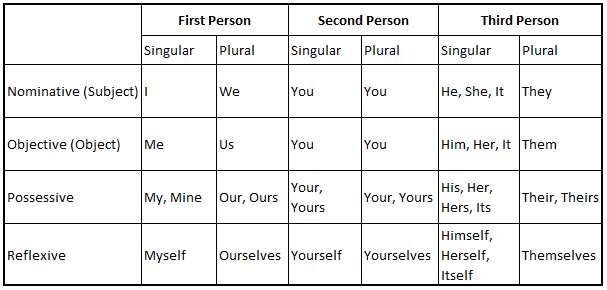Noun
A Noun mostly functions in a sentence as a Subject of a verb, Object of a verb Complement of a verb, Object of a preposition, in Apposition to a Noun.
Noun as Subject of a Verb
Whatever word is used in a sentence as a subject of a finite verb, it will be always function as a Noun in the sentence.
For Example:
a. Man is mortal.
b. Rose smells sweet.
c. Truth triumphs.
In these sentences 'Man', 'Rose' and 'Truth' are functioning as subject of the verb 'is', 'smell' and 'triumphs' respectively and hence they are all Nouns.
Noun as object of the Verb
Whatever word is used as the object of a transitive verb, it will function in the sentence as a Noun.
For Example:
a. Manju is purchasing flowers.
b. Ravi has seen the film.
c. Ramesh told the truth.
In these sentences, 'flowers', 'the film' and 'the truth' are functioning as object of the verb 'is purchasing', 'has seen' and 'told' respectively and hence they are all Nouns.
Noun as Complement of a verb
(a) Subjective complement
The word that is used as complement of a verb of state and is one and the same thing or person as the subject will function in the sentence as a Noun.
For example:
a. My brother is a pilot.
b. Butterflies are insects.
In these sentences 'a pilot' and 'insects' are complements of the verb 'is' and 'are' respectively and also the complements are one and the same person and the thing as the subject 'My brother' and 'Butterflies' respectively. So, 'pilots' and 'insects' are functioning as Noun.
(b) Objective Complement
The word that is used as a complement related to the object of a transitive verb and is one and the same person or thing as the object, will function as a noun in the sentences.
For Example:
a. We call our dog Tiger.
b. People elected Mr. John Mayor.
In these sentences 'Tiger' and 'Mayor' are functioning as one and the same thing and person as the object 'dog' and 'Mr. John' respectively and hence they are Nouns.
Noun as Object of a Preposition
Sometimes a Preposition needs an object and such an object will always function as a Noun. It is very easy to identify the object of a preposition – if we question with 'what' or 'whom' after the preposition and get an answer to such a question, the answer will be the object.
Let us consider the following sentences:
a. He went to the market.
b. I shall not play with Ramesh.
To what? -------> the market
With whom? ----> Ramesh.
In these sentences, when we questioned with 'what' and 'whom' after the preposition 'to' and 'with', the answers were 'the market' and 'Ramesh' respectively and hence they are functioning as objects. Since 'the market' and 'Ramesh' are objects of preposition, they are Nouns.
It will be important to note that sometimes a preposition in combination with a verb forms a Verb-Phrase or Phrasal verb which can function like a transitive verb. In such cases, the object will not be the object of the preposition but the object of the phrasal verb. For example, in the sentence, 'Mother looks after the child', 'the child' is not the object of the preposition 'after' but the object of the phrasal verb 'looks after'.
Noun in Apposition to a Noun
The word, which is used in Apposition to a Noun in a sentence, is, in essence, a subjective complement. When the verb of state preceding the subjective complement is replaced by a coma (,) before (and after) the subjective complement, it is no longer called a complement, it is then called a Noun in Apposition to a Noun.
Look at the following sentences:
1. (a) Mr. Sharma is a doctor.
(b) Mr. Sharma, a doctor, lives in our home.
2. (a) Shyampur is a village
(b) Shyampur, a village, is three miles away from the town.
In sentences 1 (a) and 2 (a), 'a doctor' and 'a village' are subjective complements preceded by the verb of state 'is'. Where as, in sentences 1 (b) and 2 (b) the verb of state 'is' has been replaced by a comma (,). Though in essence 'a doctor' and 'a village'. In sentence 1 (b) and 2 (b) are subjective complement; they are described as Noun in apposition to the Noun 'Mr. Sharma' and 'Shyampur' respectively.
Pronoun
A pronoun is used in place of a Noun and its function is similar to that of a noun. Given below is a useful chart of the forms of pronouns in nominative (Subject), Objective (Object), Possessive and Reflexive case in different Numbers, Persons and Genders.






